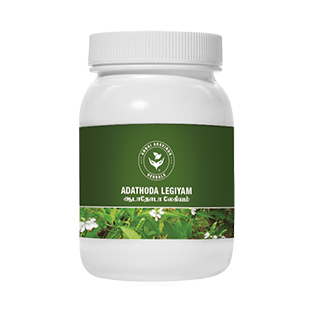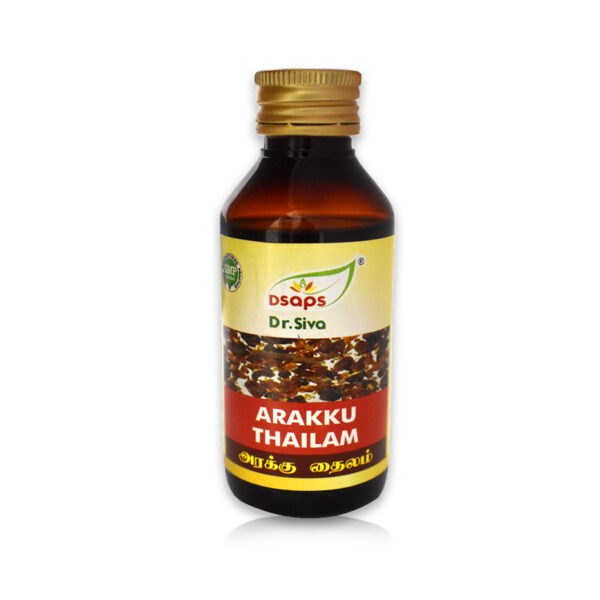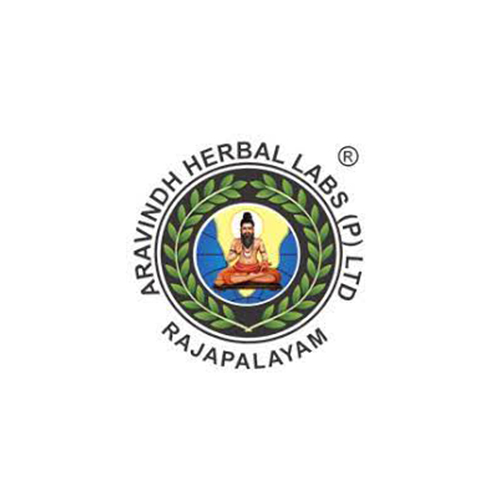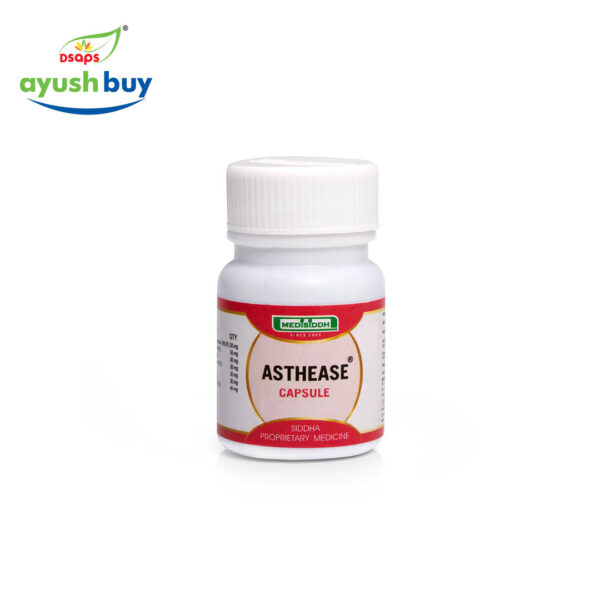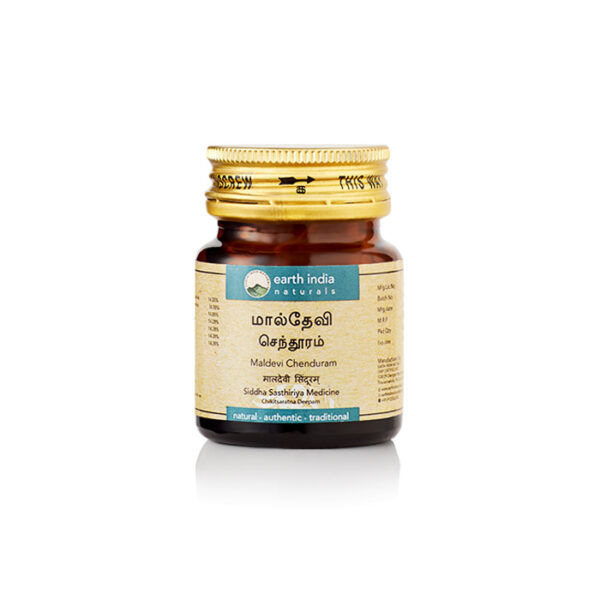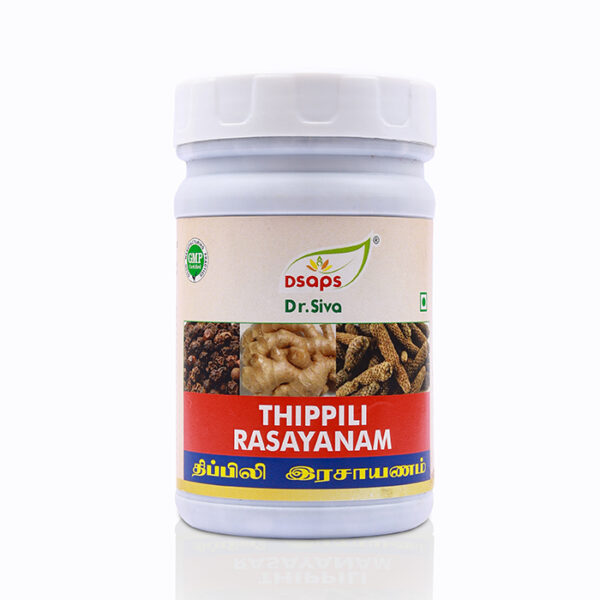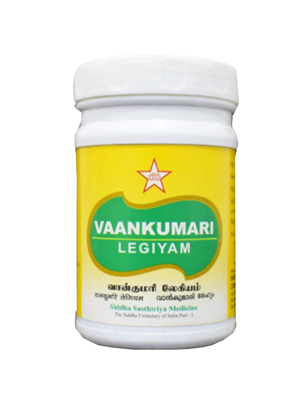Traditional Siddha Medicine for Asthma
What is Asthma?
Asthma is a condition in which the airways get narrow and swell and may produce extra mucous. This might make it hard to breathe and cause coughing, a whistling sound when breathing out (called wheezing), and feeling like you can’t catch your breath. For some people, Asthma is a minor problem. For others, it can be a significant problem that interferes with daily activities and may lead to a life-threatening asthma attack. According to Siddha, this disease is characterized by tightness of the chest and difficulty breathing, in which the breathing sounds resemble instruments like yaazh or veena.
Factors that Cause Asthma
- Dietary factors (intake of cold food items) or any activities may cause derangement of kabam
- Association of kabam with vatham may lead to severity of this disease
- Airborne allergens, such as pollen, dust mites, mold spores, or particles of cockroach waste
- Respiratory infections such as the common cold
- Strong emotion and stress
- Preservatives added to foods and beverages
- Gastroesophageal reflux disease (GERD)
- Air pollutants and irritants such as smoke.
Symptoms of Asthma
- Shortness of breath
- Chest tightness or pain
- Wheezing when exhaling, which is the common sign of Asthma in children
- Trouble sleeping.
Signs that Asthma is worsening
- More frequent asthmatic attacks
- Increased difficulty breathing
- The need to use a quick relief inhaler more often.
Signs and Symptoms flare up in certain conditions
- Exercise-induced Asthma can get worse when the air is cold and dry, making it harder to breathe during physical activity.
- Occupational Asthma triggered by workplace irritants.
- Allergy-induced Asthma triggered by airborne substances.
Siddha Diet Tips for Asthma
There are no foods that are considered helpful for asthmatics. Being rich in healthy antioxidants, anti-inflammatory, anti-biotic, and anti-bacterial properties, these foods fight against bacterial infections in the respiratory system and also reduce excessive mucus production, swelling of air passage, and other asthmatic symptoms.
- Plenty of fruits and vegetables are loaded with vitamin A and vitamin C, which may help to reduce lung swelling and irritation.
- Take vitamin D – people with severe Asthma might have low levels of it. Foods like milk, eggs, and fish, such as salmon, have vitamin D. Also, spending a few minutes outside in the sun can help increase your vitamin D levels.
- Eating to maintain a healthy weight – being overweight can worsen Asthma.
- Avoid allergy-triggering foods
- Avoid sulfites- Sulfites can be found in preservative foods. Example: Wine, dried fruits, pickles, etc.
- Avoid oily, junk, and gluten-containing food.
Siddha’s Approach to Treating Asthma
Each Siddha drug is given based on a specific treatment plan designed uniquely for the individual. This is done to help balance and restore the body’s natural humors. Initially, purgative or emetic can be used to normalize the deranged Lapham and Latham. The significance of giving such therapy before administering the primary drug is to remove excess phlegm from the respiratory tract. After this, internal medicines can be given. Not only medicine but kayakalpa treatment also emphasizes the importance of breathing exercises or pranayama in the treatment of this disease. This kind of exercise helps regulate the breath, known as “saram” or “vasi” in Siddha medicine. Therefore, it enables one to reduce stress and provide a healthy atmosphere for the mind, body, and soul.
Herbs Used in the Siddha Treatment of Asthma
- Athimathuram (licorice / Glycyrrhiza glabra) – contains anti-histamines that give instant relief to Asthma.
- Arathai (Greater galangal / Alpinia galanga) – is an effective herb for treating cough and Asthma.
- Kandankathiri (Yellow fruit nightshade / Solanum xanthocarpum) – gives quick relief from Asthma and also for all kinds of respiratory disorders.
- Manathakkali (Black nightshade / Solanum nigrum) – ripe berries have been used for treating Asthma for a very long time.
- Koshtam (crepe ginger / Costus speciosus) – it is an expectorant that acts well in respiratory diseases like Asthma, bronchitis, etc. It releases the bronchioles and helps in breathing easily.
- Adathodai (Malabar nut / Adathoda vasica) – it helps for Asthma and also for upper respiratory infections.
- Thaaleesapathram (East Himalayan fir / Abies spectabilis) – It has the properties of bronchodilation, helps ease breathing, and also reduces Asthma and bronchitis.
How to Prevent Asthma?
Preventing asthma attacks and managing the condition effectively involves a combination of lifestyle changes, environmental modifications, and medical management. While Asthma cannot always be entirely prevented, adopting the following strategies can help reduce the frequency and severity of asthma symptoms:
- Identify Triggers: Work with your healthcare provider to identify and avoid triggers that can worsen asthma symptoms. Common triggers include allergens such as pollen, dust mites, pet dander, mold, smoke, pollution, and respiratory infections.
- Create a Trigger-Free Environment: Take steps to minimize exposure to known triggers by keeping your living and work environments clean and free of allergens. Use allergen-proof covers on pillows and mattresses, vacuum regularly, and use air purifiers to reduce indoor air pollution.
- Manage Allergies: If you have allergies, work with an allergist to develop an allergy management plan. This may include allergy testing, allergen avoidance strategies, medications such as anti-histamines or nasal sprays, and allergen immunotherapy (allergy shots).
- Maintain a Healthy Lifestyle: Eat a balanced diet rich in fruits, vegetables, whole grains, and lean proteins to support overall health and immune function. Regular physical activity can also help improve lung function and reduce the risk of asthma symptoms.
- Manage Stress: Stress and anxiety can trigger asthma symptoms in some individuals. Practice stress-reduction techniques such as deep breathing exercises, meditation, yoga, or tai chi to promote relaxation and reduce the risk of asthma flare-ups.
- Avoid Tobacco Smoke: Avoid smoking and exposure to secondhand smoke, as cigarette smoke can irritate the airways and trigger asthma attacks. If you smoke, quit smoking and avoid exposure to tobacco smoke as much as possible.
- Monitor Air Quality: Pay attention to outdoor air quality forecasts, especially on days when pollution levels are high or when allergens such as pollen are prevalent. Limit outdoor activities during times of poor air quality, and consider using a mask or scarf to cover your nose and mouth when outdoors.
- Follow Your Asthma Action Plan: Work with your healthcare provider to develop a personalized asthma action plan that outlines steps to take in case of worsening symptoms or asthma attacks. Be familiar with your asthma medications, including how and when to use them.
- Regular Medical Follow-Up: Schedule regular follow-up appointments with your healthcare provider to monitor your asthma control, adjust your treatment plan as needed, and address any concerns or questions you may have.
- Vaccinations: Stay up-to-date on recommended vaccinations, including the annual flu vaccine and pneumococcal vaccine, to reduce the risk of respiratory infections that can trigger asthma exacerbations.
By adopting these preventive measures and working closely with your healthcare provider, you can effectively manage your Asthma and reduce the impact it has on your daily life.


